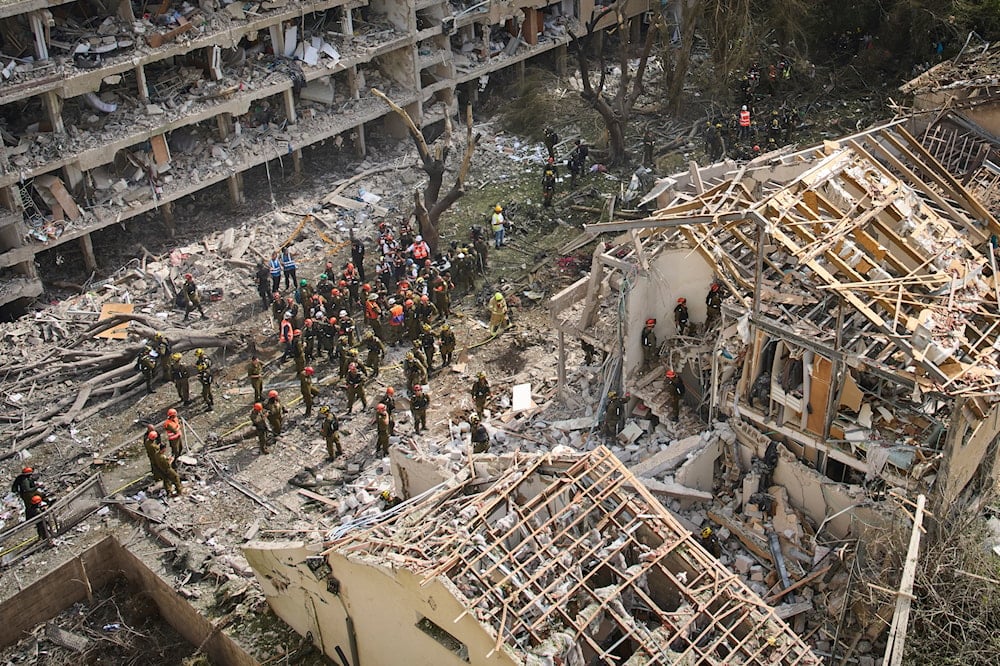Israeli compensation claims surge after Iran retaliatory strikes
Nearly 50,000 compensation claims have been filed in "Israel" over property damage from Iranian missile strikes, with costs estimated at $1.5 billion, exposing a looming fund deficit.
-

Israeli firefighters, rescue workers, and soldiers work at the site of a direct missile strike launched from Iran in Tel Aviv, occupied Palestine, on June 22, 2025. (AP Photo/Oded Balilty)
Israeli newspaper Maariv quoted Amir Dahan, head of the compensation department at the Israeli Tax Authority, as reporting that nearly 40,000 compensation claims have been filed within two weeks following Iranian missile strikes. These claims were primarily for property damage in areas directly affected by the bombardment.
Dahan projected that the number of claims would soon reach 50,000 with the conclusion of the war on Iran. Since the start of the war, the authority has already disbursed 2.5 billion shekels ($734 million) and expects the total amount to reach 5 billion shekels ($1.46 billion).
He expressed surprise at the extent of the destruction, citing significant damage to the Weizmann Institute and the Bazan Refinery, noting that the estimated damage to the Weizmann Institute alone stands at 2 billion shekels, with around 25 buildings needing demolition due to missile impacts.
The remarks also revealed a looming shortfall in the war compensation fund. Dahan stated that current claims total 6 billion shekels ($1.76 billion), while the fund held 9.5 billion shekels ($2.64 billion) before the war, pointing out that many businesses, especially in the north, have yet to submit claims.
To streamline the process, the Tax Authority has implemented a computerized system to handle claims for blast wave damage, offering up to 30,000 shekels in compensation.
Read next: Haifa Mayor: Injuries, widespread destruction, nothing is immune
Calls for revised compensation
The compensation system has triggered political debate. MK Orit Farkash-Hacohen (State Camp) criticized the Finance Ministry's handling of the situation, calling for a permanent compensation mechanism aligned with declared military operations. She questioned the lack of clarity regarding compensation eligibility and issues related to unpaid worker leave.
According to Israeli media, Shahar Turgeman, head of the Federation of Israeli Chambers of Commerce, urged the implementation of a compensation and leave framework similar to that established after October 7.
Roi Cohen, Chairman of the Lehav Union, said the same fixed-expense reimbursement model from the earlier war should apply to businesses affected by the war on Iran.

 2 Min Read
2 Min Read









